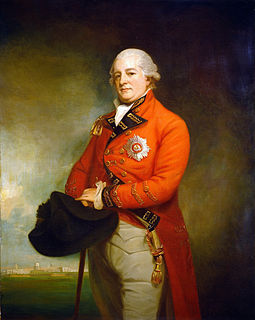This page is based on this
Wikipedia article Text is available under the
CC BY-SA 4.0 license; additional terms may apply.
Images, videos and audio are available under their respective licenses.

Events from the year 1774 in Canada.
The Battle of Alligator Bridge took place on June 30, 1778, and was the only major engagement in an unsuccessful campaign to conquer British East Florida during the American Revolutionary War. A detachment of Georgia militiamen under the command of General James Screven chased Thomas Brown's Loyalist company into a large position of British regulars established by British Major Mark Prevost and were turned back.
McRae is a surname. Notable people with the surname include:
Walter Hill is an American film director.
William, Will or Bill Wright may refer to:
Humphry is a masculine given name and surname. It comes from the Old Germanic name Hunfrid, which means "friend of the hun". The name may refer to:
Jameson is a patronymic surname meaning "son of James", originating on the Isle of Bute, Scotland, where the name has resided since ancient times. It may also be a given name. Jameson may refer to:
William West may refer to:
William Houston was one of the Founding Fathers of the United States.
The Houstoun, later Houstoun-Boswall Baronetcy, is a title in the Baronetage of the United Kingdom.

The Capture of Savannah, or sometimes the First Battle of Savannah, was an American Revolutionary War battle fought on December 29, 1778 pitting local American Patriot militia and Continental Army units, holding the city, against a British invasion force under the command of Lieutenant Colonel Archibald Campbell. The British seizure of the city led to an extended occupation and was the opening move in the British southern strategy to regain control of the rebellious Southern provinces by appealing to the relatively strong Loyalist sentiment there.
Bowerman is an English surname. Notable people with the surname include:
Abbot is an English surname derived from the word "abbot". Its a spelling variant of the more common name Abbott. Notable people with this surname include:
Burbidge is a surname. Notable people with the surname include:
The surname "Lyall" is found early in Scotland and was derived from the Old Norse given name "Liulfr" meaning Wolf. After the Viking settlement in Scotland name sounds would have changed. For example, "Liulfr" is pronounced 'lee-oolv-ur', but after time probably softened in pronunciation to 'lee-ooler' and then 'loo-il' and finally 'lyall' after the Old Norse "R" was dropped off the end. The Lyall Clan is a Sept of Clan Sinclair a Highland Scottish clan of Norman origin a people descended from Norse Vikings who held lands in the north of Scotland, the Orkney Islands, and the Lothians.
Lyall is a surname. Notable people with the surname include:
Curtis or Curtiss is a common English given name and surname of Anglo-Norman origin derived from the Old French curteis, which means "polite, courteous, or well-bred". It is a compound of curt- ″court″ and -eis ″-ish″. The spelling u to render [u] in Old French was mainly Anglo-Norman and Norman, when the spelling o [u] was the usual Parisian French one, Modern French ou [u]. -eis is the Old French suffix for -ois, Western French keeps -eis, simplified -is in English. The word court shares the same etymology but retains a Modern French spelling, after the orthography had changed.


